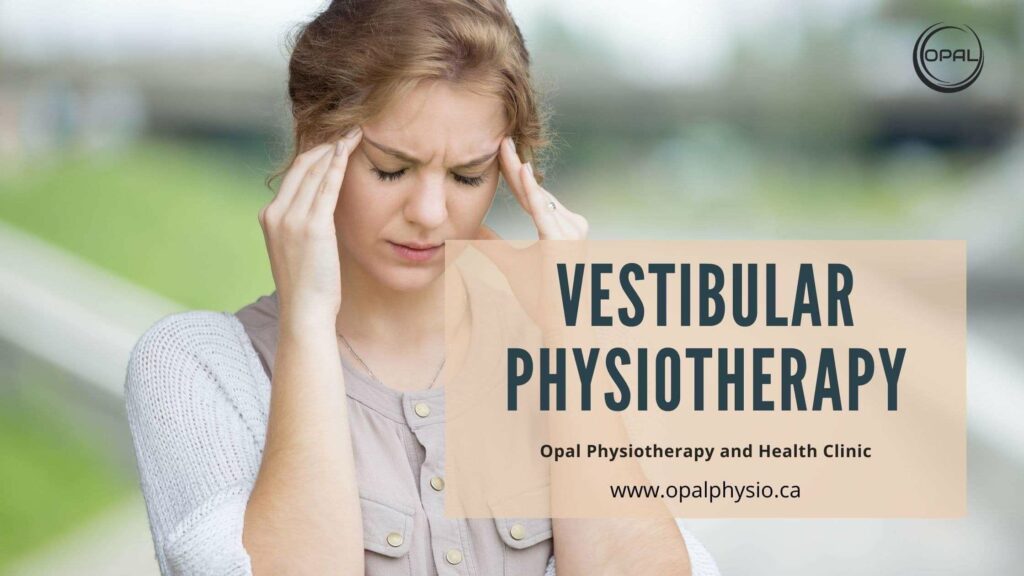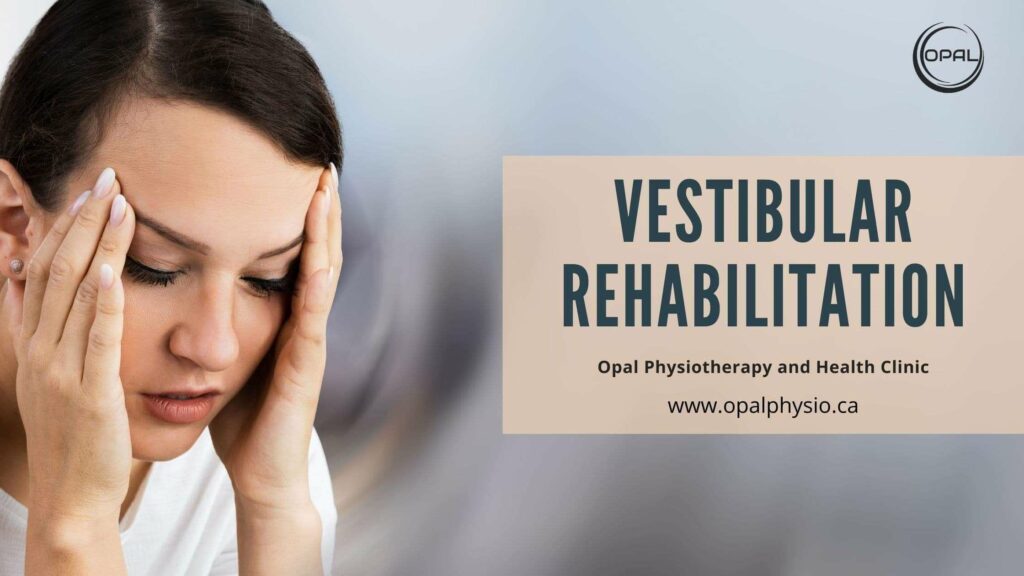Vestibular Physiotherapy and Rehabilitation

Vestibular Physiotherapy and Rehabilitation Langley
Do you suffer from dizziness, acute or chronic? Are you tired of relying on medication that may or may not work?
Come see us for Vestibular Physiotherapy Treatment In Langley!
Your body relies on balance to help you do just about everything. If you’re experiencing dizziness, balance problems, or even a ringing in your ears, it could be a sign that your vestibular system is in trouble. Our vestibular PT is here to help you with your symptoms of dizziness and get back on your feet by regaining your balance with our vestibular rehabilitation therapy services.
A certified vestibular physiotherapist with special training in vestibular dysfunctions can accurately assess the cause of the dizziness and apply the proper treatment techniques to help address your vertigo. Vestibular physiotherapy and rehabilitation with an understanding of vestibular dysfunction often has a high success rate in treating this disorder.
Vestibular rehabilitation therapy is used for people with balance or vertigo problems such as benign paroxysmal positional vertigo, perilymphatic fistula, Ménière’s disease, labyrinthitis or after a stroke, head injury, or other illness that has caused dizziness or vertigo.
Vestibular physiotherapy
Vestibular physiotherapy is a type of therapy used to treat dysfunction in the vestibular system. The vestibular system is a part of the body located in the inner ear and is responsible for maintaining balance and equilibrium. The vestibular system includes the semicircular canals, otolith organs, and the vestibulocochlear nerve. Dysfunction in the vestibular system can be caused by head trauma, stroke, or an inner ear infection.
Vestibular physiotherapy focuses on the vestibular system to help people with dizziness, vertigo, nausea and other symptoms. Treatments are provided to help regain balance through positional techniques and various exercise methods.
At Opal Physiotherapy in Langley, BC, we offer Vestibular Physiotherapy and vestibular rehabilitation treatment to help clients with balance disorders, dizziness, vertigo, and other vestibular symptoms. Our team has widespread experience and training in providing customized vestibular rehabilitation treatment to meet your needs. Physiotherapists use a personalized approach to help clients achieve their goals.
Our vestibular physiotherapy treatment approach has helped many of our clients regain their balance and function.

Benign Paroxysmal Positional Vertigo or BPPV Treatment
Benign Paroxysmal Positional Vertigo (BPPV) is the most common cause of vestibular dysfunction. BPPV is a disorder where the crystals in the semicircular canal become dislodged, most often related to a problem with displaced otoconia ( crystals of calcium carbonate ). This may occur from any sudden changes in head positions, physical trauma or following a head injury.
This can occur on one side, with intermittent and transient symptoms lasting for a shorter duration of time, usually less than one minute. The symptoms may include feeling off-balance when standing or walking, nausea and sometimes can even induce vomiting.
In the most common type of vertigo, BPPV, the crystals in the semicircular canals attach to one side of the vestibular nerve and disrupt the transmission of signals between the ear, cerebrum, and brainstem, causing imbalance. This can lead to dizziness and vertigo, which is usually worse when the head is tilted to one side. Advanced electrophysiologic tests are usually recommended by your physician but are not usually necessary to rule out causes of vertigo in certain conditions.
BPPV is diagnosed mainly through the client’s history and can also be confirmed with a simple diagnostic positional maneuvers test. BPPV can usually be helped and treated with simple repositioning maneuvers provided by your therapist and can be done at home.
What is Vertigo?
Vertigo is a neurological condition that affects your balance and usually causes a spinning sensation. There are three types of vertigo: positional, peripheral, and central.
Positional vertigo is caused by an inner ear problem. Vertigo attacks are likely to occur when you change your position suddenly, like moving around in bed and turning your head.
In most cases, there is no apparent cause for BPPV or vertigo. However, sometimes it may result from an underlying condition or trauma. It is more common in older adults younger than 60 yrs of age, often a gradual onset with previous episodes, trauma, and inner ear infections.
Peripheral vertigo is caused by problems with the vestibular nerve in the ear or its connections to the brain. Symptoms can also be attributed to vestibular dysfunctions like labyrinthitis and migraines.
Central vertigo is caused by a problem in the brain or the cerebellum and is common with conditions like MS and traumatic brain injuries.
To get the right help with your vertigo treatment, call us at 604-532-7887 to book your appointment with our best physiotherapist today.
Vestibular Rehabilitation Therapy
Vestibular rehabilitation therapy (VRT) is a type of physical therapy that can help patients with vestibular conditions. Vestibular rehabilitation is designed to stimulate the vestibular nerve, which helps with balance and coordination. VRT is an effective treatment for vestibular disorders and uses exercises to improve balance and eye movement control.
VRT exercises are designed to retrain the brain to accurately process information from the vestibular system. VRT can help to improve symptoms such as balance, dizziness, vertigo, and nausea.
Vestibular rehabilitation Therapy is often used to treat vestibular disorders that are caused by problems with the inner ear. These disorders can be caused by viruses, head injuries, or aging. VRT can also be used to treat vestibular disorders other than inner ear problems.
VRT is usually done by a physical therapist. The therapist will design a treatment plan based on your symptoms and medical history. The plan may include exercises to improve your balance and eye movement control.
VRT can help to improve your quality of life by improving your symptoms. It can help you to be more independent and to reduce your dependence on others.
Talk to our certified vestibular rehabilitation therapist today if you think you may benefit from VRT.
Frequently asked questions.
Vestibular physiotherapy near me.
Our certified vestibular physiotherapists at the Langley location have treated patients with dizziness and concussion for many years and provide vestibular rehabilitation also for the surrounding Lower Mainland and Fraser Valley regions.
During your initial consultation, our vestibular PT provides a one-on-one assessment and offers a customized vestibular rehabilitation treatment and exercise programme designed and administered to you by our highly trained vestibular physiotherapist near you. Depending on the severity of the issue, one to a few vestibular physiotherapy sessions may be necessary.
